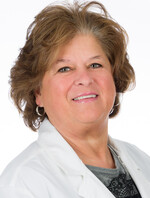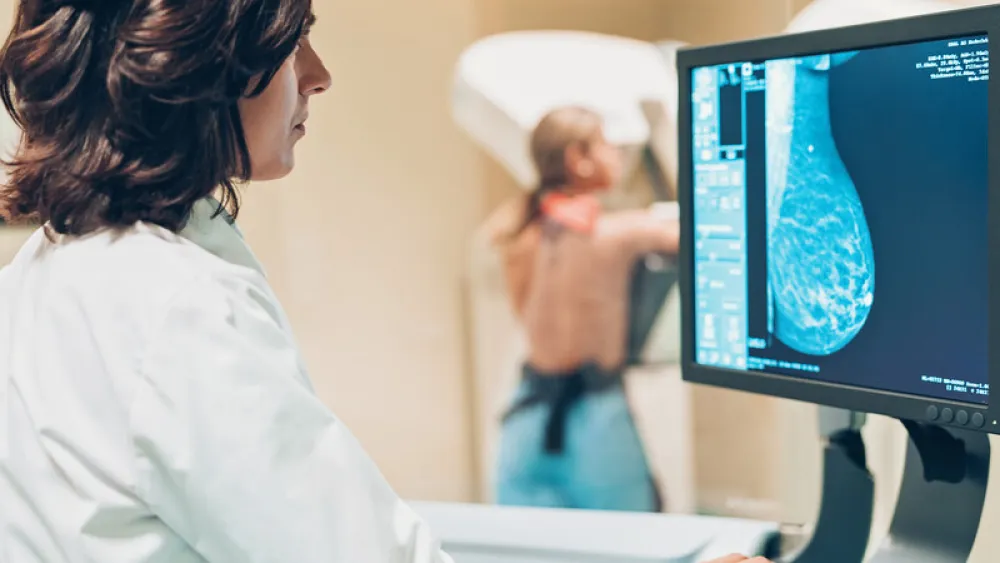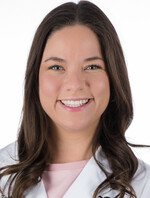





Women's Health
A personalized approach to breast cancer screening
Published: Oct. 4, 2024

The American Cancer Society recommends that women should start screening for breast cancer with annual mammograms when they turn 40. This yearly rhythm is advised to see if anything changes from year to year. If things do change, women are able to receive the care they need sooner.
Many women who have a family history of breast cancer want to be proactive about their breast health because they’ve witnessed or been part of a loved one’s cancer journey. Enhanced screening efforts are available for these women to identify any changes even earlier.
Importance of family history
At a mammogram or annual checkup with a primary care provider or OB/GYN, nurses and providers ask patients questions about their family medical history. This information can reveal things that may not be identified from simply completing a physical exam.
Even if an exam or imaging is normal, it’s possible that a patient can be identified as having an increased hereditary risk of cancer based on their family history. This hereditary – or high – risk means that their genes may be predisposed for a cancer diagnosis. If that’s the case, steps can be taken to help mitigate the risk.
“If a patient has a hereditary cancer risk, that doesn’t mean they’re going to get cancer,” said Tammy Johnson, APRN, a nurse practitioner at Methodist Jennie Edmundson Hospital’s Breast Health Center. “It just means that over time, as they age, they could be at an increased risk for a diagnosis.”

Women with multiple family members who’ve had breast or ovarian cancer can be referred to the hereditary cancer risk program at Methodist Jennie Edmundson Hospital or the high-risk breast cancer program through Methodist Estabrook Cancer Center.
Multiple cases of more common cancers, such pancreatic or prostate cancer, in the family may also lead to a referral.
Patients who are flagged as being high-risk are invited to reach out to Methodist providers to discuss their family history and learn about additional screening recommendations or adjustments. Patients can connect with Morgan Tooley, APRN, at the Methodist Estabrook Cancer Center Breast Care Center inside the Methodist Women's Hospital Office Building as well as Michael Zlomke, MD, or Johnson at Methodist Jennie Edmundson Hospital.

Common changes to breast cancer screening include:
- Increasing clinical breast exams to twice a year instead of annually
- Offering MRIs to take a deeper look at breast tissue
- Alternating mammograms and MRIs every six months
Women with higher breast density – as identified from a mammogram may also be flagged as high-risk and benefit from adjustments to screening efforts. Patients with heterogeneously dense or extremely dense breast tissue are recommended to alternate mammograms and breast MRIs to help providers receive a clearer picture of any changes.
Some patients may also be eligible for genetic testing.
Genetic testing
People who qualify for genetic testing typically have multiple cancers on one side of the family, but there isn’t one particular thing that makes someone eligible for genetic testing.
According to Tooley, about 25-30% of the general public qualifies for genetic testing, but the percentage of people who know they’re eligible is much smaller.
After genetic testing is completed, providers have additional conversations with patients to discuss what their results mean and develop a personalized plan.
The most common course of action is adjusting their screening efforts.
“Most people are receptive and want to do what they can to be preventive,” Tooley said. “Sometimes they’ve seen a family member go through breast cancer treatment, so they want to be able to catch it early if they can.”

Additionally, if a patient is positive for a BRCA gene mutation, a preventive mastectomy or oophorectomy – the removal of one or both ovaries – may be recommended.
It’s possible that other gene mutations not related to breast cancer are identified from genetic testing, which could lead to modified screening efforts for other cancers, such as more frequent colonoscopies.
The genetic test results may also provide information helpful for other family members. According to guidelines from the American College of Radiology, women 25 and older with an identified 20% or higher lifetime risk of breast cancer are encouraged to develop a personalized screening plan.
Methodist’s hereditary cancer risk and high-risk breast cancer programs aim to help patients make informed decisions about their medical management.
“Knowledge is power,” Tooley said. “Being able to have all that information and compile it together is important for people because it can impact what they’re doing for their health.”


